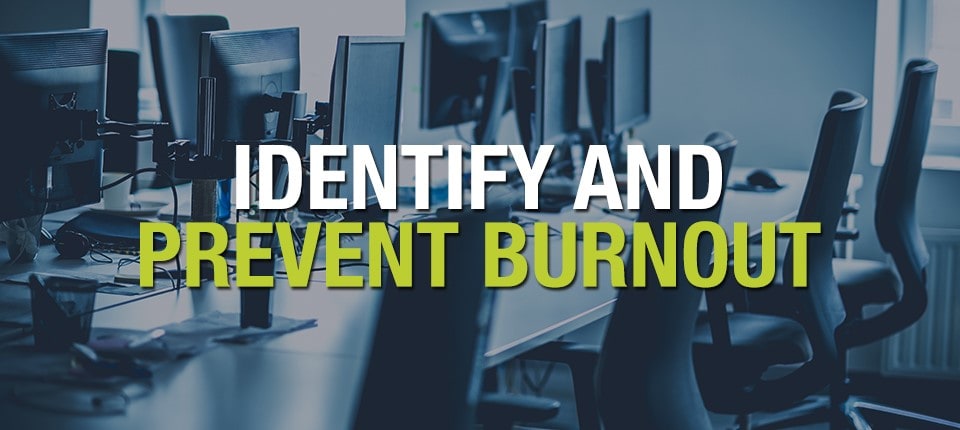Burnout has the potential to occur after a prolonged period of stress leads to emotional, physical and mental exhaustion. This overwhelmed state can trigger a downward spiral of anxiety, unhappiness and reduced confidence that bleeds into both the personal and work life.
In a study of 7500 full-time employees last year, 23% admitted to feeling burned out at work all the time, with 44% saying they feel that way regularly. Collectively, this group is 63% more likely to take a sick day and 2.6 times more likely to be actively seeking a different job. In the UK alone, 15.4 million working days were lost in 12 months due to work-related stress or anxiety last year.
The HSE says the professional occupations category shows a significantly higher rate of work-related stress than any other.
Burnout at work impacts employees of all ages around the world, and at every level of the career ladder. Similar to imposter syndrome, high achievers and perfectionists are particularly vulnerable. In the US, a study showed that highly engaged employees are also the ones most likely to burn out, which means companies could be losing their top performers.
While January is one of the toughest times of the year for career blues in the UK, it is especially important to look out for signs of burnout later in the year as well.
Six Key Factors that Lead to Burnout at Work
- High Workload: In the UK, 44% of stress or depression at work is caused by a high workload.
- Unclear Job Expectations: In America, only 60% of employees say they know what is expected.
- Lack of Managerial Support: Those with a strong support system are 70% less likely to experience burnout.
- No Work/Life Balance: The inability to manage work and personal life can have a snowball effect.
- Stressful Working Environment: There is a correlation between stressful jobs and burnout.
- Conflict: Conflict is one of the main work-related factors causing burnout.
Career Burnout Symptoms
- Disengagement: Over-engagement is a symptom of high-stress levels. Going to sleep and waking up thinking about a problem or a deadline is a perfect example of over-engagement. When you start to disengage with your work by ignoring or avoiding it, burnout warning bells should start ringing.
- Helplessness: Stress usually manifests as a sense of urgency, often resulting in hyperactivity. Anyone facing perpetual deadlines knows the feeling. Burnout, however, is characterised by helplessness and hopelessness. The feeling that nothing you do is going to have any effect on your situation or progress your workload.
- Blunted emotions: When under stress, you may find that your emotions are exaggerated and more difficult to control. You may become angry or upset far easier than usual. Blunted emotions are a symptom of burnout. You may feel that you do not have the energy to react appropriately to situations, or that you are unable to feel excited or worried at all.
Burnout is Preventable
Unlike other physical or mental health issues, burnout symptoms have the potential to be managed, prevented and even reversed before any serious intervention is needed.
How to Recover from Burnout at Work
- Seek Support: Whether from a co-worker or manager, talking about the problem and seeking advice is the first step to finding a solution. Your company may have mental health assistance available or measures that you can take to get back on track. Evaluate all your options.
- Book Time Off: Sometimes taking time off work is the only way to give yourself time to re-evaluate your priorities and get to the root of your stresses. Make a conscious decision to use this time to reflect on your situation and not simply evade it. Find out how to strategically book leave in 2019 to optimise your time off.
- Slow Down: Feelings of being out of control, and the idea that everything is under severe time-pressure, are common symptoms of long-term stress. Take a few minutes each day to practice mindfulness and focus your mind on the tasks in your control.
- Ask for more flexibility: Studies show that employees are willing to exchange a pay increase for the chance to work more flexible hours. With a huge shift towards businesses becoming more agile, the growth of remote working, and an increasing amount of co-working and flexible workspace options around the world, more companies are starting to introduce flexible working hours to reduce commuting time and increase happiness.
Remember, these are simply tips to help you improve your situation in the short term. Burnout has genuine health implications and we strongly recommend that you seek professional help in overcoming it. A mental health professional will provide you with tools to make your recovery simpler and easier to maintain – https://therapists.psychologytoday.com is a great resource for finding a therapist in your area.
Looking for Office Space?
We Operate in Some of the World’s Top Cities:
London, New York, San Francisco, Paris, Singapore, Hong Kong,
Search more locations
